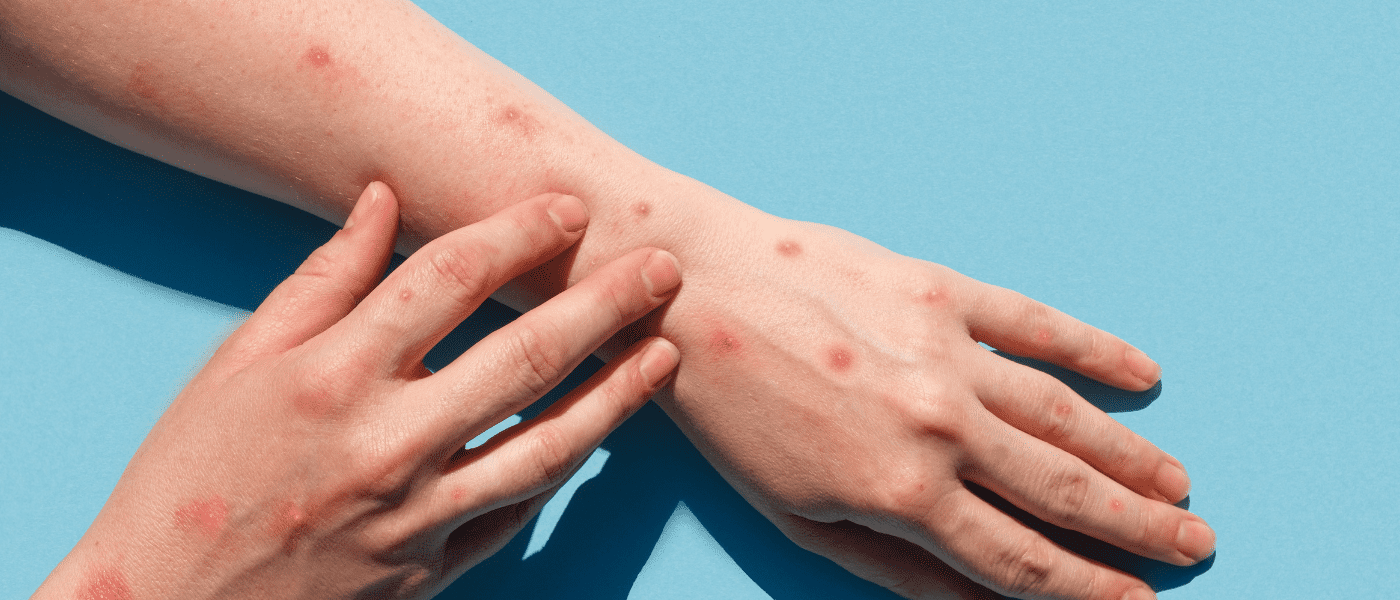Introduction
Monkeypox is a virus that has its roots in the animal world. It has gotten a lot of attention as a possible threat to public health. Even though monkeypox is rare and not as bad as its close relative, smallpox, it is still a topic of interest because it can spread from animals to humans and does so sometimes. This guide will tell you everything you need to know about monkeypox, including what causes it, what its signs are, how to avoid getting it, and how to treat it.
Learn about what causes monkeypox and how it spreads.
The monkeypox virus, which is in the family of Orthopoxviruses, is what causes the disease. Like its close cousin, smallpox, monkeypox is zoonotic, which means it comes from animals but can spread to people. The virus is thought to have natural reservoirs in many animal species, especially rodents and small mammals, which act as carriers without showing signs.
People get sick when they come into close contact with infected animals, their bodily fluids, or things that are contaminated. Also, the virus can spread from person to person, usually through close contact with an infected person or through their mucus.
Symptoms and how it looks in the body
Usually, signs of monkeypox show up 7 to 14 days after being exposed. There are many different symptoms of the disease, which can vary in how bad they are:
Fever: The first signs are often fever, tiredness, and sore muscles, just like many other viral illnesses.
Rash: A unique rash appears, starting with swollen, fluid-filled bumps and ending with pustules and scabs. Usually, the rash starts on the face and moves to other parts of the body from there.
Lymph Nodes: It’s normal for lymph nodes to get bigger, especially near the rash.
Respiratory Symptoms: Coughing, shortness of breath, and lung involvement are some of the respiratory symptoms that can happen.
Most cases of monkeypox are mild and go away on their own, but severe cases, especially in people with weak immune systems, can lead to consequences like pneumonia or encephalitis.
Vaccination and Other Steps to Prevent Monkeypox
Getting vaccinated is still one of the best ways to avoid getting monkeypox. The smallpox vaccine, which protects against both types of the disease, has been used in some places to stop breakouts. Also, people are working on making a special monkeypox vaccine to protect against the virus in a more targeted way.
Other ways to stop this from happening are:
Avoiding Direct Contact with Animals: Having as little direct contact as possible with mice and other wild animals that could have the virus
Personal Hygiene: Good hygiene, like washing your hands often, can help lower the risk of spreading the disease.
Isolation: Keeping sick people away from other people during an outbreak by putting in place infection control measures
Educational campaigns: letting healthcare workers, communities, and people at risk know more about monkeypox and how it spreads
How to Treat and Handle
There is no special medicine to fight the virus that causes monkeypox. Supportive care, such as pain relief, managing wounds, and treating problems, is still the main way to help. In severe cases, you may need to stay in the hospital, especially if you have trouble breathing or get a secondary bacterial infection.
Through research and current clinical trials, scientists are trying to come up with targeted antiviral treatments for monkeypox that could help patients get better and make the disease less severe.
Global Effects and the Future
Even though monkeypox outbreaks don’t happen very often or all the time, it’s important to be aware of the disease and keep an eye out for it in order to find and control any possible breakouts. The global health community continues to keep an eye on cases of monkeypox and work together on research, ways to avoid it, and ways to deal with it.
Conclusion
Monkeypox is a virus that can spread from animals to humans. This makes it a difficult problem for public health. To lessen its effects, you need to know what causes it, what its signs are, how it spreads, and what you can do to stop it. We can work to reduce the risk of monkeypox and protect public health around the world by raising awareness, advancing research, and putting into place effective prevention and treatment plans.







